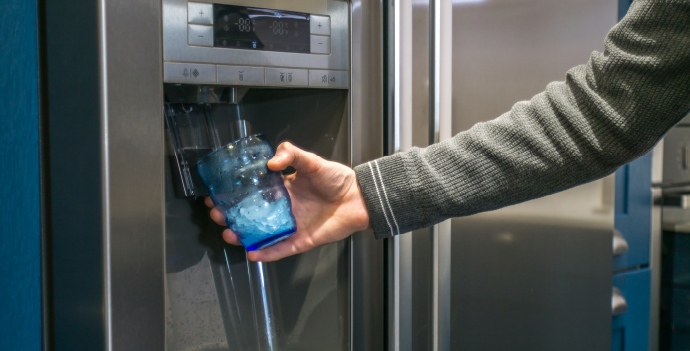In the pursuit of healthier living, many of us turn to our refrigerator’s built-in water filter systems. These filters promise to deliver clean, refreshing water straight from the tap, free from impurities and contaminants. However, while these filters certainly offer convenience, their effectiveness may leave much to be desired. In this post, we’ll explore why your refrigerator filter might not be as adequate as you think when it comes to ensuring your water is truly clean and safe to drink.
- Limited Filtration Capacity: Refrigerator filters are typically designed to target common contaminants like chlorine, sediment, and odors. While they may effectively remove these substances to some extent, they often lack the comprehensive filtration capabilities of dedicated water filtration systems. This means that certain contaminants, such as heavy metals, pesticides, and pharmaceutical residues, may still be present in your water even after it passes through the refrigerator filter.
- Infrequent Replacement: Another issue with refrigerator filters is that they often go overlooked for extended periods. Many people forget to replace their filters according to the manufacturer’s recommendations, leading to reduced filtration efficiency over time. Even if you do remember to replace the filter regularly, the cost of replacement cartridges can add up, prompting some to stretch out the intervals between changes. This can result in compromised water quality and potential health risks for you and your family.
- Lack of Testing and Certification: Unlike dedicated water filtration systems, refrigerator filters are not always subject to rigorous testing and certification standards. While some may claim to meet certain filtration standards, the actual effectiveness of these filters can vary widely. Without independent testing and certification from reputable organizations, it’s challenging to determine the true performance of a refrigerator filter and whether it provides adequate protection against contaminants.
- Dependence on Water Quality: The effectiveness of a refrigerator filter also depends on the quality of the incoming water supply. If your tap water is heavily contaminated or contains high levels of impurities, the refrigerator filter may struggle to provide sufficient filtration. In such cases, investing in a more robust filtration system that can handle a broader range of contaminants may be necessary to ensure the safety and quality of your drinking water.
- Environmental Concerns: Finally, it’s worth considering the environmental impact of refrigerator filters. Most filter cartridges are made of plastic and must be disposed of after use, contributing to plastic waste and pollution. Additionally, the manufacturing and transportation of replacement cartridges consume resources and energy, further exacerbating their environmental footprint. By opting for a more sustainable water filtration solution, such as a reusable pitcher or faucet-mounted filter, you can reduce your environmental impact while still enjoying clean drinking water.
In conclusion, while refrigerator filters offer convenience and some level of filtration, they may not be adequate for ensuring the purity and safety of your drinking water. Their limited filtration capacity, infrequent replacement, lack of testing and certification, dependence on water quality, and environmental concerns are all factors to consider when evaluating their effectiveness. For peace of mind and confidence in the quality of your water, investing in a dedicated water filtration system with proven performance such as a reverse osmosis system is often the best choice. Your health and well-being deserve nothing less.
If you’re interested in clean water in your home – schedule a free, no-obligation in-home water analysis with an Artisanal Water local expert.
Call (704) 315-6344 or fill out our contact form.
